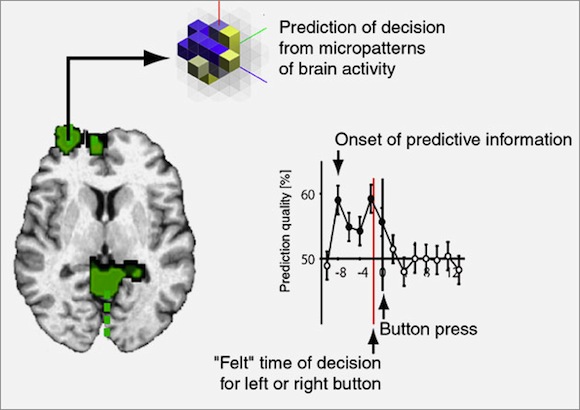It seems to be very interesting that we can use modern neuroscience and cognitive science research to inform us about the ages-old question of free-will vs. determinism. The standard experiment was done by Benjamin Libet in 1983 that demonstrated that electrode activity showed that in terms of using our left or right hands - electric signals showed a significant change in activity before the reported decision to make the movement was made. This is one of the founding experiments of the neuroscience of free-will.
However, it seems that this experiment informs us in a very limited temporal duration. Since I could not find any conclusive results myself, I wanted to ask if they were any neuroscience experiments that demonstrated long-term predictive behavior. An example would be if a person with a particular imaged localized area could be said pre-hand to have a certain behavioral reactions in response to stimuli. This would defend give a strong defense to the determinist philosophical position. Of course, I'm talking about conscious reactions (such as decision-making in social situations, since the idea is that people consciously think they make their own decisions). An experiment involving unconscious processes such as memory would not be very informative.
If so:
Which experiment(s) comments on this?
What is the degree of validity of the experiment? (Summary of Methods and Results)
Are the results controversial? Does it truly make a comment on the philosophy of free will?
If not, is it that Neuroscience is still not mature enough have predictive power like hard sciences such as biology, chemistry and physics. After all, the brain is a incredibly complex organ, and responding to complex multimodal stimuli (e.g. social situations) it would further complicate the possibility of any such study.
Sources:
TIME OF CONSCIOUS INTENTION TO ACT IN RELATION TO ONSET OF CEREBRAL ACTIVITY (READINESS-POTENTIAL) BENJAMIN LIBET, CURTIS A. GLEASON, ELWOOD W. WRIGHT, DENNIS K. PEARL Brain Sep 1983, 106 (3) 623-642; DOI: 10.1093/brain/106.3.623
